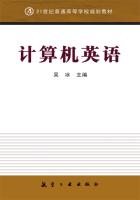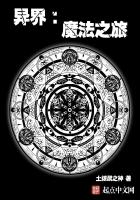内容导读
自古希腊以来,对“善”的追求一直是衡量人的品性的重要标记。而“善”的核心内容,用培根的话说,便是爱他人。只有在爱他人时,我们才确立了自身作为“人”的资格。所谓“予人玫瑰,手有余香”,最好的解释莫过于此。
英文正文
I take goodness in this sense,the affecting of the weal of men,which is that the Grecians call philanthropia;and the word humanity(as it is used)is alittle too light,to express it.Goodness Icall the habit,and goodness of nature the inclination.
This of all virtues,and dignities of the mind,is the greatest,being the character of the deity;and without it,man is abusy,mischievous,wretched thing;no better than akind of vermin.Goodness answers to the theological virtue charity,and admits no excess,but error.The desire of power in excess,caused the angels to fall;the desire of knowledge in excess,caused man to fall;but in charity,there is no excess;neither can angel,or man,come in danger by it.The inclination to goodness is imprinted deeply in the nature of man:in so much,that if it issue not towards men,it will take unto other living creatures:as it is seen in the Turks,a cruel people,who nevertheless are kind to beasts,and give alms to dogs,and birds:insomuch as Busbechius reporteth;a Christian boy in Constantinople had like to have been stoned,for gagging,in awaggishness,a long billed fowl.Errors,indeed,in this virtue of goodness,or charity,may be committed.The Italians have an ungracious proverb;tanto buon che val niente:so good,that he is good for nothing.And one of the doctors of Italy,Nicholas Machiavelli,had the confidence to put in writing,almost in plain terms:That the Christian faith had given up good men,in prey,to those that are tyrannical,and unjust.Which he spoke,because indeed there was never law,or sect,or opinion,did so much magnify goodness,as the Christian religion doth.
Therefore,to avoid the scandal,and the danger both,it is good to take knowledge of the errors of an habit so excellent.Seek the good of other men,but be not in bondage to their faces,or fancies;for that is but facility,or softness;which taketh an honest mind prisoner.Neither give thou Aesop's cock agem,who would be better pleased,and happier,if he had had abarley corn.
中文译文
论善与性善
弗朗西斯·培根
我所采取的关于“善”的意义,就是旨在利人者。这就是希腊人所谓的“爱人”(Philanthropia);这个字的字义用“人道”(humanity)一语来表现(如目下之所为)是有一点薄弱的。爱人的习惯我叫作“善”,其天然的倾向则叫作“性善”。
这在一切德性及精神的品格中是最伟大的,因为它是上帝的特性。倘若没有这种德性,人就成为一种忙碌的、为害的、卑贱不堪的东西,比虫豸好不了许多。“善”与神学中的德性、“仁爱”相符合,并且不会过度,只能有错误。过度的求权力的欲望使天神堕落;过度的求知识的欲望使人类堕落;但是“仁爱”却没有过度的情形;无论是神或人,都不会因它受到危险。向善的倾向在人性中印得很深;怎样深法?就是如果这种倾向不发向人类,也要及于别的生物的;这可由土耳其人见之,他们是一个残酷的民族,却对待禽兽很仁慈,并且施舍及于狗和鸟类。据伯斯贝丘斯记述,君士坦丁堡有一个耶教青年,因为在玩笑中撑住了一只长喙鸟的嘴,差一点被人用石头打死了。土耳其人爱物的程度有如此者。在这种“善”或“仁爱”的德性中,错误有时是不免的。意大利人有一句骂人的成语:“他太老好,好得简直成了废物了。”意大利的宗师之一,尼古亚斯·马基雅维利,也居然有这种自信,几乎明明白白地写道:“耶教把善良之人做成鱼肉,贡献给那些专横无道的人。”他说这话,因为真的从来没有一种法律、教派或学说曾如耶教一样地尊重过“善”的。
因此为避免诽谤及危险起见,最好研究研究如此优良的一种习惯其错误安在。我们要努力利人,但是不要做他人面貌或妄想的奴隶;因为若是那样,就是易欺或柔懦了;易欺或柔懦是拘囚诚实的人的。也不要给《伊索寓言》中的雄鸡一颗宝石,这雄鸡要是得到一颗麦粒,它要快乐欢喜得多了。
词汇速记
weal n. 福利,幸福
alms n. 救济金,施舍物
Constantinople n. 君士坦丁堡
gag v. 塞住……的口
waggish adj. 淘气的,恶作剧的
sect n. 宗派,教派
美句欣赏
The desire of power in excess,caused the angels to fall;the desire of knowledge in excess,caused man to fall;but in charity,there is no excess;neither can angel,or man,come in danger by it.俗话说,“过犹不及”。对权力的贪婪,使得路西法成了堕落天使;对知识的执迷,让浮士德把灵魂出卖给了魔鬼。然而爱他人却不在此列,因为它没有任何私心。















